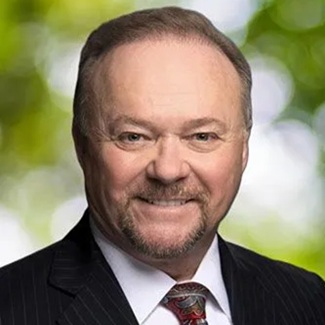3 Key Takeaways from Prince's Estate-Planning Mistakes
Even without his level of wealth or musical legacy, you should be sure to have a plan in place for everything you want to leave behind after you die.

Profit and prosper with the best of Kiplinger's advice on investing, taxes, retirement, personal finance and much more. Delivered daily. Enter your email in the box and click Sign Me Up.
You are now subscribed
Your newsletter sign-up was successful
Want to add more newsletters?

Delivered daily
Kiplinger Today
Profit and prosper with the best of Kiplinger's advice on investing, taxes, retirement, personal finance and much more delivered daily. Smart money moves start here.

Sent five days a week
Kiplinger A Step Ahead
Get practical help to make better financial decisions in your everyday life, from spending to savings on top deals.

Delivered daily
Kiplinger Closing Bell
Get today's biggest financial and investing headlines delivered to your inbox every day the U.S. stock market is open.

Sent twice a week
Kiplinger Adviser Intel
Financial pros across the country share best practices and fresh tactics to preserve and grow your wealth.

Delivered weekly
Kiplinger Tax Tips
Trim your federal and state tax bills with practical tax-planning and tax-cutting strategies.

Sent twice a week
Kiplinger Retirement Tips
Your twice-a-week guide to planning and enjoying a financially secure and richly rewarding retirement

Sent bimonthly.
Kiplinger Adviser Angle
Insights for advisers, wealth managers and other financial professionals.

Sent twice a week
Kiplinger Investing Weekly
Your twice-a-week roundup of promising stocks, funds, companies and industries you should consider, ones you should avoid, and why.

Sent weekly for six weeks
Kiplinger Invest for Retirement
Your step-by-step six-part series on how to invest for retirement, from devising a successful strategy to exactly which investments to choose.
Prince may have sung that "Money Don't Matter 2 Night," but it's clear that the $300 million estate he left behind matters quite a bit. Since Prince didn't plan his estate, his family and loved ones are stuck with the headache of probate proceedings. Between the current federal estate tax rate of 40% and an additional 16% from the state of Minnesota, the majority of Prince's estate is going to the Tax Man. Needless to say, there is much that could have been done to avoid probate and minimize estate tax.
Prince's situation is in the news because of his fame and large estate, but anyone could have made the same estate-planning mistakes, regardless of wealth. So what can you do to prevent the same thing from happening to your family? Consider these three strategies:
1. Think About Your Legacy Now
Minimizing tax is a significant benefit of estate planning, but that's not its only purpose. Estate planning is also a way to show proof of a life well lived and help family and friends achieve their dreams. The real tragedy in Prince's situation is that we'll never know the legacy he wanted to leave behind.
From just $107.88 $24.99 for Kiplinger Personal Finance
Become a smarter, better informed investor. Subscribe from just $107.88 $24.99, plus get up to 4 Special Issues

Sign up for Kiplinger’s Free Newsletters
Profit and prosper with the best of expert advice on investing, taxes, retirement, personal finance and more - straight to your e-mail.
Profit and prosper with the best of expert advice - straight to your e-mail.
Prince certainly left behind an unforgettable musical legacy. But were there any goals he had not yet fulfilled? Are there loved ones that he wished to provide for? Is there a cause or purpose that Prince would have wanted to promote? What would he have liked to change in the world around him? All of these questions will be left unanswered because he didn't provide any estate planning guidance.
Before planning your estate, think about the mark you want to make on the world. Use your goals, desires and values to guide the planning process. A competent estate-planning professional can help you create a plan that leaves your legacy behind and protects your loved ones.
2. Reduce Estate Taxes with a Trust
Prince had many long-term friends and reportedly remained close to both of his former wives. Unfortunately for them, none will get any of his estate. Instead, his estate is now subject to claims from a variety of relatives with whom Prince shared little, if any, connection. A claim has even been filed by a previously unknown son who is now in prison. (At least that can be resolved by a paternity test.)
Prince could have avoided this situation by creating a trust to benefit those close to him. With proper planning, a trust could have helped him reduce his estate taxes and avoid probate. A trust is particularly important for single people because they typically do not have a statutory scheme to give assets to the people truly important in their lives. Unmarried life partners are often excluded in the absence of a trust or will.
The best estate-planning tool to avoid probate and provide greater benefits to your loved ones is a revocable trust. If beneficiaries are too young to manage wealth, or you're concerned about their money management skills, specialized provisions may be included to provide control over distributions. Three good options to look into are incentive provisions, spend-thrift provisions and provisions for a discretionary lifetime trust. Special needs provisions may also be used for beneficiaries receiving or expected to receive needs-based government benefits.
For all beneficiaries, specialized provisions should be considered to protect the estate from lawsuits, divorce, creditor claims, bankruptcy and even estate tax that may be incurred by your loved ones after you are gone.
3. Form a Charitable Trust or Foundation
In life, Prince was known to be very generous in his support and mentorship of new artists. Perhaps he would have wanted to continue providing assistance to young artists through a charitable foundation. Or as a devout Jehovah's Witness, maybe he would have wanted to designate funds for specific causes within his church.
Prince could have formed his own charitable organization, either as a public charity or a private foundation. Public charities have higher tax-deductible limits for contributions, as well as the ability to receive financial support from other public charities and private foundations; however, there are strict guidelines on activities and governance. Private foundations have fewer qualifying restrictions and can be a fallback option for organizations that do not qualify as a public charity, although deductions are lower.
Charitable trusts are another good option, as they can provide a tax deduction and income to your beneficiary. An often-overlooked giving alternative is a pooled income fund (PIF), a charitable structure established and maintained by the charity. Donors receive a "share" of the fund and income tax deductions each year they make a gift, allowing PIFs to provide greater deductions and economic returns than other alternatives.
You do not have to be as wealthy as Prince to establish a charitable-giving program. You can work with a regional donor-advised fund to obtain many of the advantages of your own charitable organization without formation or administrative costs. Another alternative is an endowment fund, established and maintained by the charity itself. Finally, you can simply make a charitable gift in your trust or estate plan. This is an easy, accessible way to give without the cost, time and complication of an endowment fund.
We all want to make a difference in the world and ensure that our loved ones are taken care of, even after we're gone. What would you like to change in the world? What would you like to preserve for future generations? Estate planning can help you answer these questions and rest easy knowing that your legacy will be maintained.
John M. Goralka is the founder of The Goralka Law Firm, an estate planning, trust administration, business and tax firm.
Profit and prosper with the best of Kiplinger's advice on investing, taxes, retirement, personal finance and much more. Delivered daily. Enter your email in the box and click Sign Me Up.

John M. Goralka is Senior Counsel at CunninghamLegal in Sacramento, California. John joined CunninghamLegal because of the firm's high degree of professionalism, commitment to client service and creative ability to provide solutions. For decades, John has helped thousands of families and business owners protect, preserve and pass on their wealth with confidence. Through The Goralka Law Firm, founded in 1996, Mr. Goralka and his team built a reputation for designing practical, tax-efficient estate plans that truly worked when families needed them most. He is one of the few attorneys in California who is dual-certified as a Specialist in both Taxation Law and Estate Planning, Trust & Probate Law by the State Bar of California Board of Legal Specialization.
-
 Stocks Shrug Off Tariff Ruling, Weak GDP: Stock Market Today
Stocks Shrug Off Tariff Ruling, Weak GDP: Stock Market TodayMarket participants had plenty of news to sift through on Friday, including updates on inflation and economic growth and a key court ruling.
-
 You Received a Life Insurance Payout. Here's How to Avoid an IRS Audit.
You Received a Life Insurance Payout. Here's How to Avoid an IRS Audit.You received a big check from your loved one's life insurance policy. Will the IRS be expecting a check from you now?
-
 Supreme Court Strikes Down Trump Tariffs: What's Next for Consumers and Retailers?
Supreme Court Strikes Down Trump Tariffs: What's Next for Consumers and Retailers?Tax Law This landmark decision will reshape U.S. trade policy and could define the outer boundaries of presidential economic power for years to come.
-
 I'm a Financial Planner: This Is How You Can Legally Divorce the IRS for the Rest of Your Life
I'm a Financial Planner: This Is How You Can Legally Divorce the IRS for the Rest of Your LifeWith some careful planning focused on the standard deduction, retirees who have large sums in tax-deferred accounts can avoid unpleasant tax bills and even part ways with the IRS for good.
-
 9 Ways the Wealthy Waste Thousands in Taxes: A Checklist for What Not to Miss
9 Ways the Wealthy Waste Thousands in Taxes: A Checklist for What Not to MissThe tax code contains plenty of legitimate ways for the wealthy and business owners to cut taxes. Use this checklist to minimize taxes and stay compliant.
-
 When Estate Plans Don't Include Tax Plans, All Bets Are Off: 2 Financial Advisers Explain Why
When Estate Plans Don't Include Tax Plans, All Bets Are Off: 2 Financial Advisers Explain WhyEstate plans aren't as effective as they can be if tax plans are considered separately. Here's what you stand to gain when the two strategies are aligned.
-
 Counting on Real Estate to Fund Your Retirement? Avoid These 3 Costly Mistakes
Counting on Real Estate to Fund Your Retirement? Avoid These 3 Costly MistakesThe keys to successful real estate planning for retirees: Stop thinking of property income as a reliable paycheck, start planning for tax consequences and structure your assets early to maintain flexibility.
-
 I'm a Financial Planner: These Small Money Habits Stick (and Now Is the Perfect Time to Adopt Them)
I'm a Financial Planner: These Small Money Habits Stick (and Now Is the Perfect Time to Adopt Them)February gets a bad rap for being the month when resolutions fade — in fact, it's the perfect time to reset and focus on small changes that actually pay off.
-
 Social Security Break-Even Math Is Helpful, But Don't Let It Dictate When You'll File
Social Security Break-Even Math Is Helpful, But Don't Let It Dictate When You'll FileYour Social Security break-even age tells you how long you'd need to live for delaying to pay off, but shouldn't be the sole basis for deciding when to claim.
-
 I'm an Opportunity Zone Pro: This Is How to Deliver Roth-Like Tax-Free Growth (Without Contribution Limits)
I'm an Opportunity Zone Pro: This Is How to Deliver Roth-Like Tax-Free Growth (Without Contribution Limits)Investors who combine Roth IRAs, the gold standard of tax-free savings, with qualified opportunity funds could enjoy decades of tax-free growth.
-
 I'm a Wealth Adviser Obsessed With Mahjong: Here Are 8 Ways It Can Teach Us How to Manage Our Money
I'm a Wealth Adviser Obsessed With Mahjong: Here Are 8 Ways It Can Teach Us How to Manage Our MoneyThis increasingly popular Chinese game can teach us not only how to help manage our money but also how important it is to connect with other people.